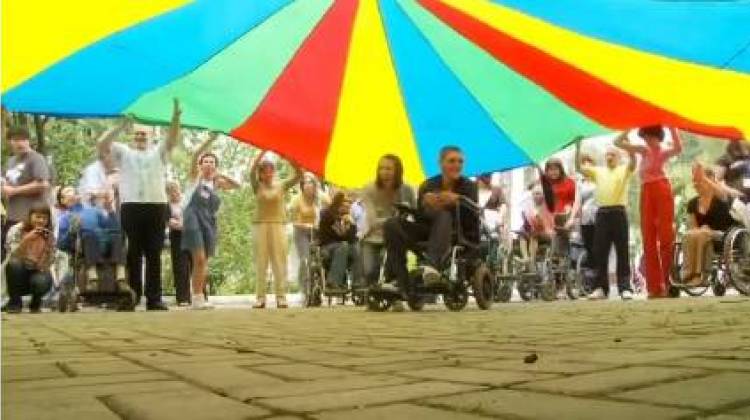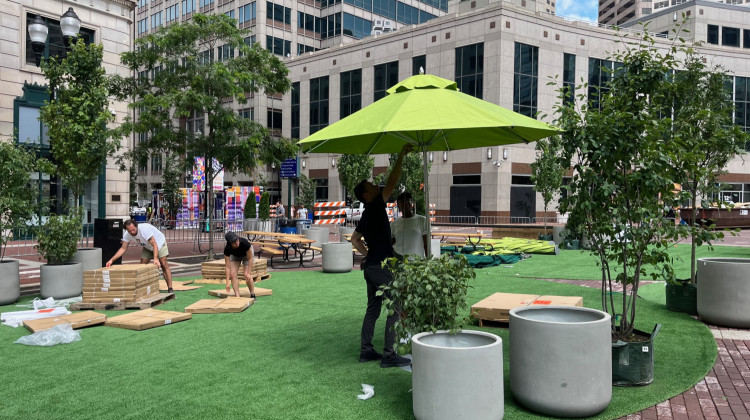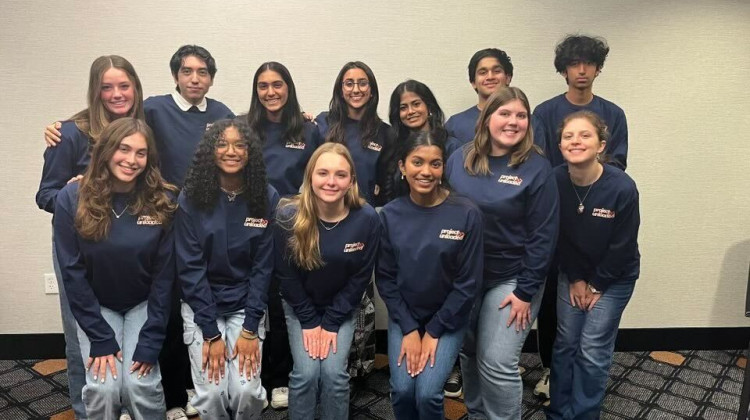Betsy Rhodes loves kids. During the school year she teaches special needs kids at Cherry Tree Elementary and for the last three summers she has volunteered to work with disabled kids at summer camps led by Mission To Ukraine, a small Carmel based ministry.
"When I went over the first time reallly what it was, it was loving on kids," explains Rhodes. "It's funny how when you love on them, you end up being the one that's changed."
Next month, Rhodes and five others will head to Zhitomir in western Ukraine. It’s a long way from the conflict zone on the eastern border and Rhodes isn’t worried.
"I expect this summer to be very similar to the past summers once camp begins," says Rhodes, "I think it will be different for me, I'll only be there 12 days this summer compared to almost a month in prior summers."
That’s because there will be only one camp session this year compared to the two that are usually held. Many nonprofit groups, including Mission to Ukraine, scaled back on programs that count on American volunteers after the conflict started late last year.
Liz Millikan is from Atlanta, Indiana but she’s been living and working in Zhitomir for the past eight years with Last Bell Ministries, another Indiana based religious nonprofit. She has had a front row seat to the country’s turmoil as Ukrainian protestors took to the streets when the ex-president moved to align more closely with Russia.
"I just was so proud and so amazed at what the Ukrainian people accomplished," says Milikan, "and then to see the Russians take away Crimea, it seems like the day after we got that great victory.... so many rollercoaster of emotions that the people of this country are going through."
She says the day-to-day work helping older orphans transition to life on their own hasn’t stopped but the crisis wears on them.
"It really only affects us all, pretty much emotionally, spiritually and morally," says Millikan, "as opposed to the everyday practicality of our work with orphans."
Mission driven nonprofits like Last Bell and Mission to Ukraine often do their work in countries where the social and economic structure is weak, but armed conflict and political chaos forces them to rethink how they do things.
At Mission to Ukraine, more than 30 volunteers, including kids, usually make the summer trip to Zhitomir, but Dr. Kenneth Ney, one of the organization's founders says they weren't willing to risk the lives of the students.
"That's been the most distressing part of this whole thing," says Ney. "Just to see so many enthusiastic, on-fire kids not be able to go, because we know how much energy and benefit they bring our camp and our ministry over there."
The threat of violence is remote but real. The U.S. Department of State has posted a Ukrainian travel warning saying that the situation there is unpredictable and could change quickly.
Angela Bies, director of international programs with the Indiana University Lilly Family School of Philanthropy, says any foreign group in Ukraine needs to be well prepared.
"I think it's really important to have a contingency plan. You can always call on the consulate or the embassy when there's a warning," explains Bies. "I think there are some limitation to what the consulate or the embassy can do."
Betsy Rhodes says her dad wanted to make sure she has a plan if things were to take a turn for the worse.
"He expressed how he was very concerned for me going," says Rhodes, "and I expressed to him that if something were to happen we could take a car to Poland and that would be a safe place for us to go."
An even bigger concern is money says Nella Wainscot, another founder of Mission to Ukraine.
"If they cut off the ability for us to get money in, or send money in, it will be catastrophic," says Wainscot.
This was a real threat earlier this year when legislation was hurriedly passed restricting civic organizations that received foreign funding Bies says.
"The foreign agents legislation was very similar to the legislation in Belarus and the legislation in Russia," says Bies. "In some cases the argument is that will stimulate the growth of domestic philanthropy, which is a good thing, but another view on that is that it is a another effort to control foreign intervention."
That law has since been repealed and tensions seem to be easing in Ukraine after the election of new president Petro Poroshenko last month.
Both groups think the international attention focused on Ukraine might ultimately help raise awareness about the country’s social problems and the plight of many Ukrainian kids. Bies wonders what better time to go… then now.
"I think you could argue that this is actually a really important time to go, because of the effort to restore some sense of social capital and normalcy in terms of civil society," says Bies. "So I think you could argue that this is just the right moment."
Today an uneasy cease-fire is in place and presidents Poroshenko and Vladamir Putin have started peace talks – developments that may make it easier for the people-to-people nonprofits to breathe a little easier and put their focus back on helping the kids they love.
*The photo with this story is provided by Mission To Ukraine.
 DONATE
DONATE







 View More Programs
View More Programs

 Support WFYI. We can't do it without you.
Support WFYI. We can't do it without you.